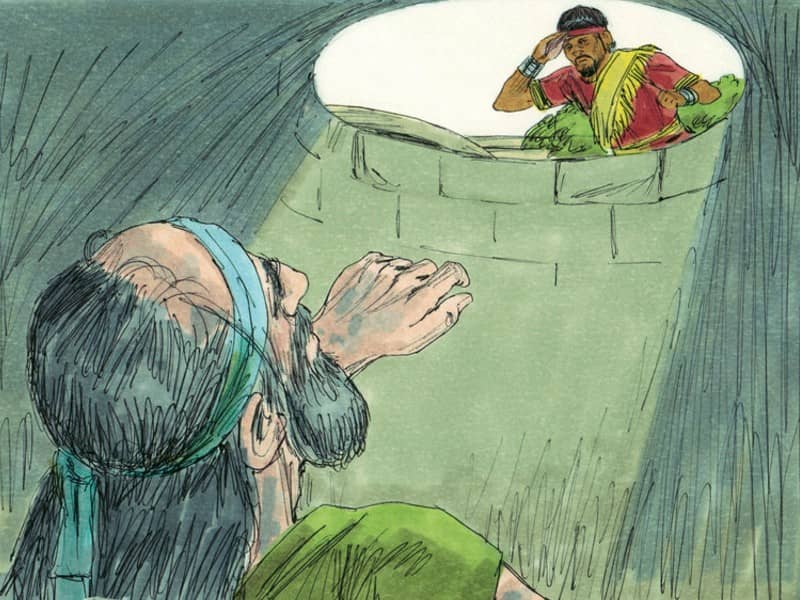In the face of such a tragedy, you can always count on some well-meaning person to quote Romans 8:28--"all things work together for good"--and to say that the tragedy is something we just have to accept as part of God’s wonderful plan for us. As if that were not enough, they'll imply that God caused what we think is a tragedy in order to achieve some greater good that we, in our limited understanding, just cannot comprehend.
I don’t buy this kind of talk. To make God the author of sickness and death is to transform God into someone who is difficult to love.
In a church where I once served, there was a man whose son died of leukemia. The man stopped coming to church. I went to visit him and told him not to stop believing in God because of what had happened. The man responded, "Oh, I still believe in God. The reason I gave up on church isn’t because I don’t believe in God, it is because I hate him. He could have cured my boy and I begged him to do that and he did nothing…so I hate him."
I tried to tell this man that God does not cause sickness and death. I told him that God is constantly struggling to abolish both, and that someday, God will--but that time is not yet.
That did not help. What did help was this: I told the man that when his son died, God was the first one who cried.
If we believe that in the midst of suffering God is with us, working along with us to create something good out of such painful realities, we can ask how sickness and death can be the basis or motivation to do something that would bless others in significant ways. Instead of asking why the sickness happened, we can ask, "God, what good can we create out of this sickness and what good can we create out of death?"
God created a good world, but rebellion against God’s will--first by Satan and his angels and then by humanity--ruined everything. Is it too much for us to accept the biblical truth that right now God is driving to overcome all the effects of such evildoers? Or that God will one day re-establish His Lordship over all persons, principalities and powers? I believe these things and I am convinced that someday, when God restores the earth, there will be no more sickness and death. But between now and then, these ugly realities will be a part of our lives.
You might be wondering if I think there is any point in praying for God to intervene and heal sicknesses. I certainly believe in praying for healing, I just don’t understand anything about it. I don’t understand why God chooses to heal some people and not others--especially when those who are not healed seem more deserving. We read in 2 Corinthians 12:7-9 that St. Paul, who healed many others, never saw prayers for his own healing answered--except in the sense that God gave him the strength and patience to endure his sickness. To quote Mother Teresa, "When I see God, he has a lot of explaining to do!"
Certainly the loving God we learn about in scripture is doing the best that is possible to alleviate our suffering and sorrow. But none of us are able to determine what it is that God deems possible; we simply have to trust God.
In James 5:14 we read that elders of the church should pray over the sick and anoint them with oil in the name of the Lord. I wish every church would set aside one evening a week to make that kind of healing ministry available. The elders or deacons in churches should put a sign outside the church that publicizes the date and time for the healing services-and announces in bold letters that non-members are especially welcome.
The church elders need not feel like they have to be like Benny Hinn to have a healing ministry. It’s God who heals and they are only obligated to follow God’s instructions.
A few years ago, while conducting a worship service, I had a sense that I should offer to pray for anyone who had special need of healing. Among several people who came to the altar and received prayer was a man who was dying of cancer. Three weeks later I received a phone call from his wife, telling me he had passed away.
The woman said:
"When my husband and I walked into that church on Sunday, he was angry with God. He had cancer and he knew he was going to be dead soon, and he hated God for letting it happen. He wanted to see his grandchildren grow up more than anything. At night he would lie in bed and curse God. It was horrible. And the angrier he got toward God, the meaner he was to everyone around him. It was unbearable to be in the same room with him. His nastiness just kept getting worse and worse and worse.
"But then you laid hands on him on Sunday morning and you prayed for him. When he walked out of church I knew something was different. I could feel it. He was a different person. The last three weeks of our lives have been the best three weeks we’ve ever had together. We talked and laughed. We even sang hymns with each other. It was a good, good time." She paused, then added, "Tony, he wasn’t cured, but he was healed."
What a profound insight. Cures for the body are temporal, but the healing of the mind and heart is eternal.

